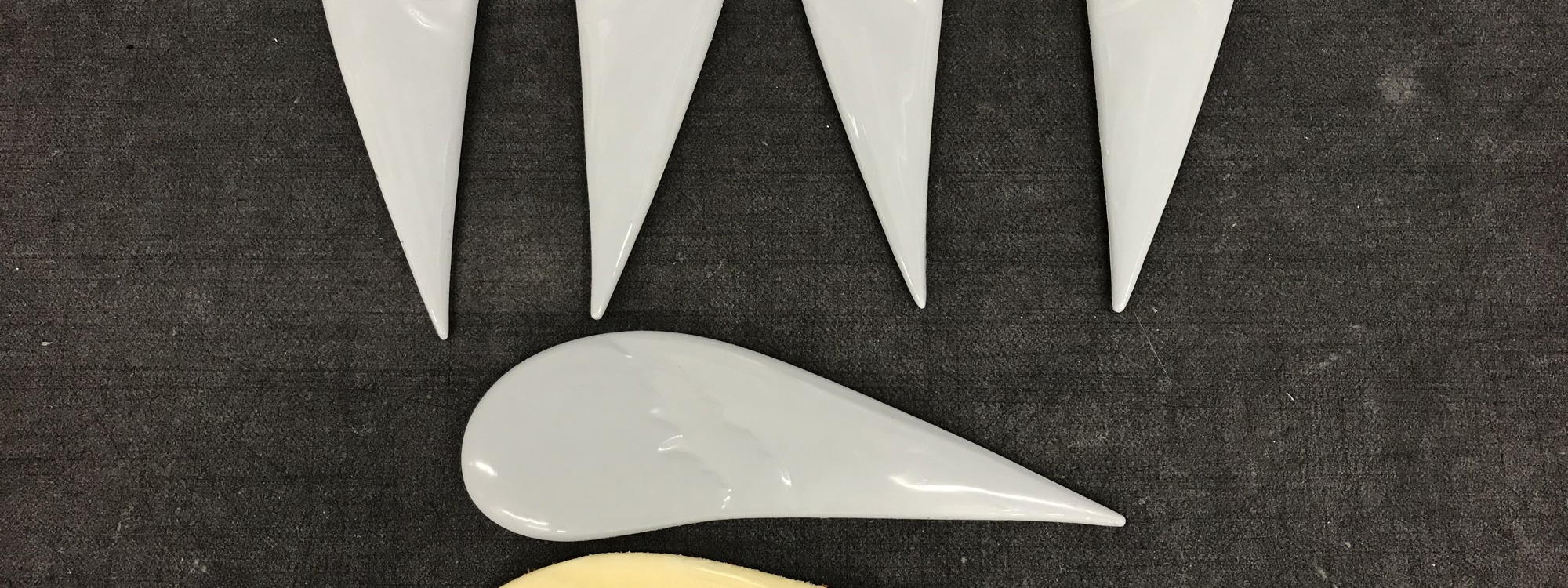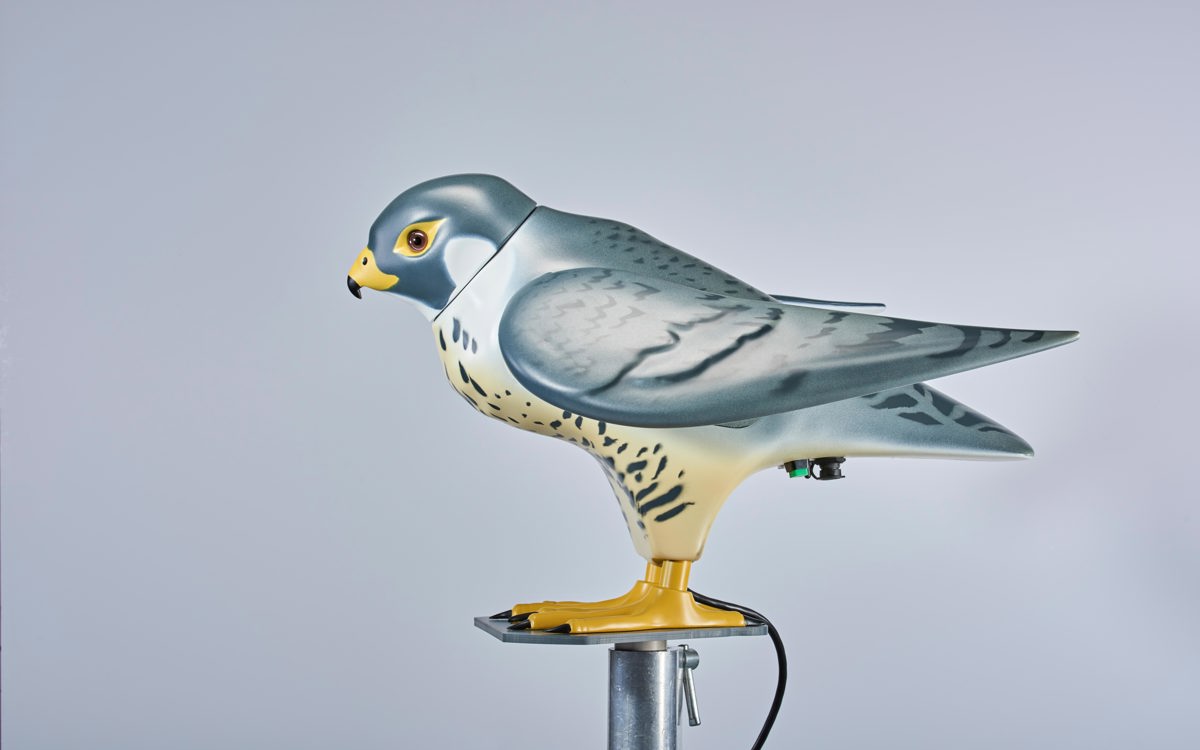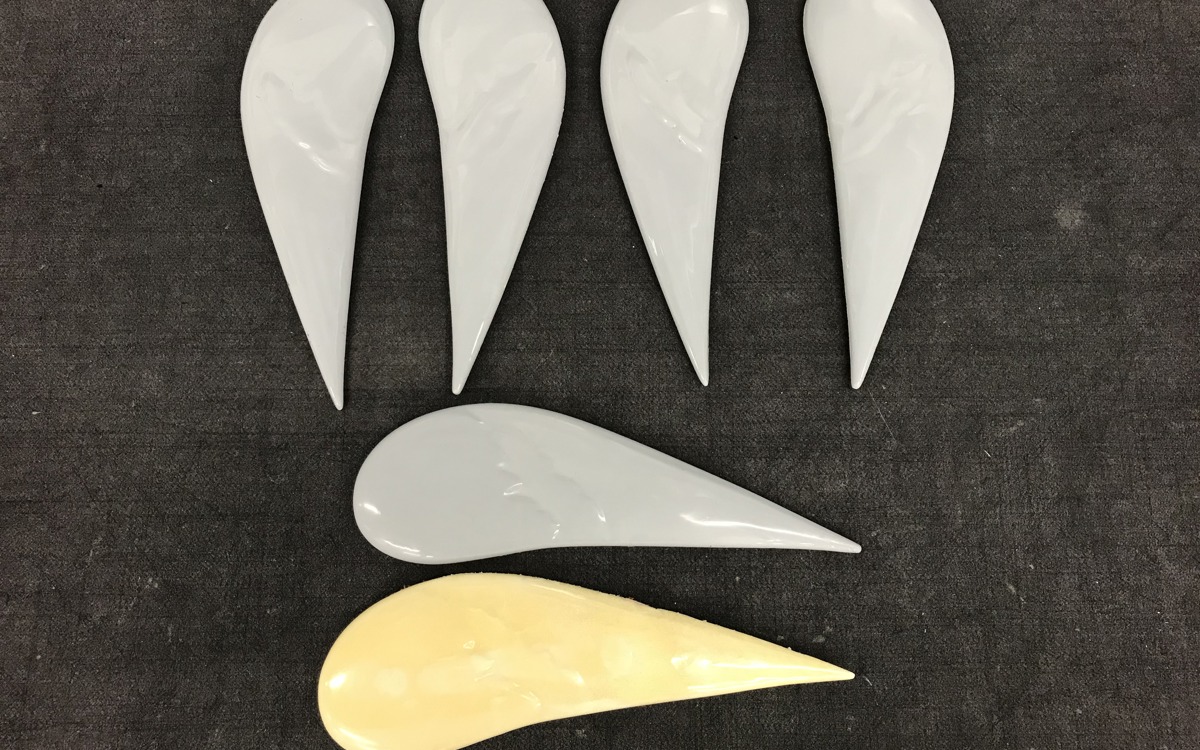
NCC develop prototype for Scottish SME
Robop is a Scottish SME who manufacture bird control systems based on their patented R-Falcon, a robot designed to look, move and sound like a peregrine falcon. These are used by owners of large buildings and other facilities world-wide to eliminate problems caused by roosting and nesting birds and in some applications to protect birds from man-made pollution hazards.
Their product’s body parts need to be strong, light and durable to withstand years of wild weather in exposed locations. They are hand-made in composite materials usually glass/polyester and sometimes in a glass/Kevlar/carbon construction.
Robop approached the NCC to investigate a repeatable and cost-effective method of manufacturing the wings, including multiple fibre options to ensure they were both lighter and stronger than before.

The NCC trialled six different material combinations and simple manufacturing techniques to compare the various solutions available. This resulted in the production of five different prototypes for Robop, including one that is 36% lighter than the original weight.
The process developed by the NCC’s specialist engineers was both faster and more cost-effective than the current way of manufacturing the product, and all prototypes were stronger and lighter than the original model. The team at the NCC designed the process, including the Bill of Materials, to be used in-house by Robop, or to be out-sourced to a manufacturer to recreate the chosen prototype.
Robop are now looking at what other components can be manufactured using the method developed by the NCC, as well as looking to see if they can bring the manufacturing in-house, which would allow them to upskill their workforce and save costs.
This project was completed as part of the SME Boost programme, which offers match funding up to £25k to small and medium-sized enterprises (SMEs) in the UK to help them develop composites products. Find out more at nccuk.com/smeboost.

